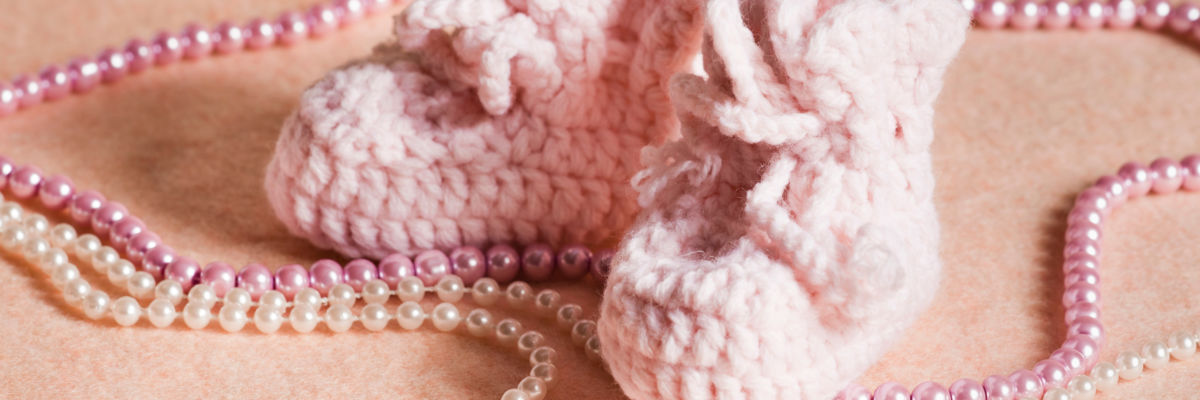
When something truly momentous happens, and people speak about it, there comes this question: “What were you doing when X occurred?” So it will be for June 24, 2022. In the months and years to come, people will ask each other, “What were you doing when you found out the U.S. Supreme Court overturned Roe v. Wade?”
I’ve worked full-time in the pro-life movement for twenty years, but on that historic morning, I was living my momma life, literally in the process of “keeping house” and scrubbing the toilet. My husband called out to me from the office that the Supreme Court decision had just been released. And so I joined him in watching the news of what truly is an amazing part of history, which we are privileged to live through. I felt strangely content delighting in the news while being “hidden” at home—not on the front lines, but reaching down to pick up my ten-month old daughter and breastfeed her as I took it all in. To be a mother at that moment made it all the sweeter.
And so I find it ironic that abortion-supporters like Michelle Obama reacted to the decision with statements like, “[Illegal abortion] is what our mothers and grandmothers and great-grandmothers lived through.” Actually, to be a mother, a grandmother, or a great-grandmother implies pregnancy and the next generation—the generation of women today who were born to such mothers yesterday. The thing Obama is clamoring for—dismemberment of our children, our grandchildren—attacks and destroys the maternal categories she speaks highly of. The women Obama and all of us refer to as our mothers and grandmothers have those labels because they did not abort us.
Why do we need mothers? It’s a question I asked a college student whom I was debating, many years ago. The obvious answer is that we need mothers to care, nurture, and protect when we are weak and incapable of doing things ourselves. My daughter is wholly dependent on me. She cannot change her own diaper, get her own food, or get snot out of her nose without my assistance! She is someone whose vulnerable nature calls out for my tenderness, not my attack. And that fragility began when she began—hidden away in my body, beneath my heart. To think I had a right then to destroy her precious body is to pervert what it means to be a mother.
And so, the overturning of Roe is a moment for jubilation, because it’s a landmark case that brings protections for the youngest of our kind and upholds what it means to be a mother.
There are three significant moments in the month of June that can be connected to this decision and guide our steps forward.
First, as many have remarked, I think it’s no accident that this decision came out on the feast of the Sacred Heart of Jesus. St. John Paul II once said, “This feast reminds us of the mystery of the love of God for the people of all times.” Indeed, as I went to Mass hours after the announcement, I was struck by the applicability of the day’s readings:
As a shepherd tends his flock when he finds himself among his scattered sheep, so will I tend my sheep. I will rescue them from every place where they were scattered when it was cloudy and dark. . . . The lost I will seek out, the strayed I will bring back, the injured I will bind up, the sick I will heal” (Ezek. 34).
And from Romans 5: “God proves his love for us in that while we were still sinners Christ died for us.”
The Dobbs decision, coming down on the day it did, is a call for a message of mercy. Christ shed his blood so all sins, including the sin of abortion, could be wiped away. The Gospel of Luke reminds us, “There will be more joy in heaven over one sinner who repents than over ninety-nine righteous people who have no need of repentance.” I think of Dr. Bernard Nathanson, a former abortionist who fought for legal abortion in the 1970s. Before his death, he converted to being Catholic and pro-life. We must preach a message of mercy so more abortion-supporters embrace Christ.
Next, there’s the Solemnity of the Nativity of St. John the Baptist. Although this feast was celebrated June 23 this year, it is normally held on June 24. What I love about the story of John the Baptist is that he and his cousin Jesus first met as pre-born children—fetal John leaping for joy in Elizabeth’s womb at the presence of the embryonic Christ child in the walking tabernacle of Mary. When God chose to enter into the human experience, he did so in its fullness—beginning life as all of us did as pre-born children. God cares so much for pre-born life that he became it. This is a good reminder for Christians and faith-based institutions to make a serious response to abortion, with preaching, prayer, post-abortion healing, and pregnancy center support.
Finally, there’s Juneteenth, June 19, which commemorates the liberation of African-American slaves. It is fitting that in this same month, pre-born children have found their emancipation, too. Just as black Americans still had a ways to go to ensure equal treatment from the 1865 emancipation in Texas, pre-born children still have a ways to go to ensure equal treatment. Now that abortion law has returned to the states, more liberal states will allow for the dismemberment, decapitation, and disembowelment of pre-born children. So we must continue to fight for full protections for the youngest of our kind while celebrating this historic win as an opportunity to be reinvigorated and re-energized.
For almost fifty years, the pro-life movement marked the somber date of January 22, 1973, when Roe v. Wade was decided, by annually marching for life in D.C. With Roe now overturned, we can think of letting January 22 gatherings die along with it. We can move from a reactive gathering to a proactive one, from a defensive position to the offensive one we have.
And so, we should claim the month of June with an annual celebration of the new Supreme Court decision, and make it a gathering point for further advancement of the pro-life message. It’s perhaps fitting, given that the secular culture celebrates it as “Pride Month,” to turn June into a month of life. I’ve always found it fascinating that the gay movement chose pride for its name. The book of Proverbs warns us that “pride comes before the fall.” Pride is also one of the seven deadly sins. We should, therefore, distance ourselves from that capital sin and instead embrace its opposing virtue: humility.
St. Vincent de Paul described humility this way: “Humility is nothing but truth, and pride is nothing but lying.” There is also this definition: “humility is the disposition to accept our impoverished dependence upon God.” Let us reclaim, then, the month of June as a month of humility, celebrating and proclaiming the truth of the pro-life message and our dependence on God.



